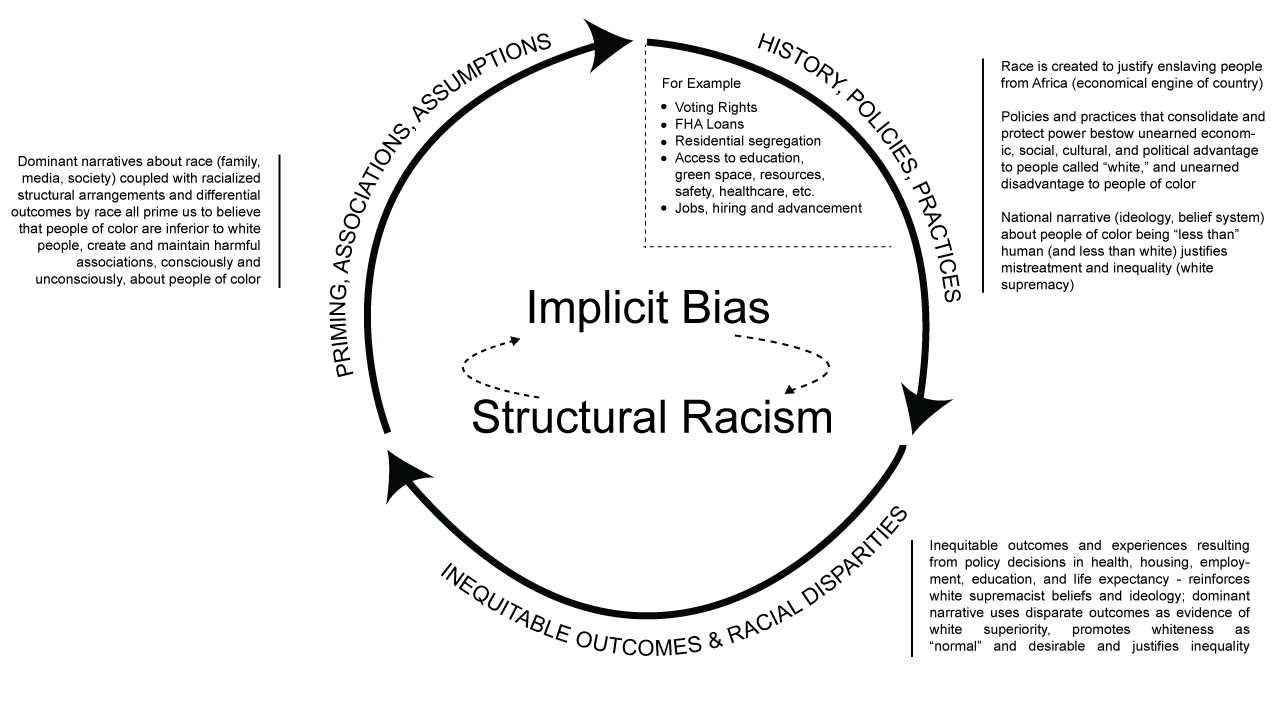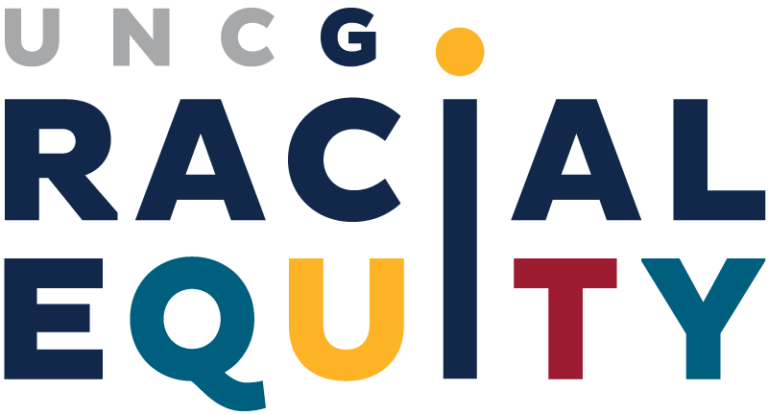Anti-Racist & Anti-Bias
Anti-bias education is an approach designed to increase understanding of differences and their value to a respectful and civil society and to actively challenge bias, stereotypes, and all forms of discrimination.
What is anti-racist and anti-bias training?
Anti-racist training provides education about systemic racism and empowers us to identify the sources and tactics of resistance to dismantle racism and to discuss the stages and characteristics of anti-racist organizational development. A framework for understanding racism: Implicit Bias and Structural Racialization — National Equity Project.
Implicit Bias and Structural Racialization:

Citation: Osta, K., & Vasquez, H. (n.d.). Implicit bias and structural racialization. Retrieved from https://www.nationalequityproject.org/frameworks/implicit-bias-structural-racialization
Anti–bias education involves creating a community that supports all dimensions of human differences, including culture, race, language, ability, ethnicity, religion, sexual orientation, gender, age, socioeconomic differences, and other areas of social differences.
An anti-bias approach fosters positive relationships and an inclusive environment for all members of the community.
Quick Links
Why Diversity Education & Training?
Diversity education and training targets anti-racism and anti-bias; promotes inclusive climate; engages restorative process for deep harm; supports adherence to best practices to mitigate the effects of bias and to deter discrimination; and ties workforce development to inclusive, just, and equitable practices and investment in equity outcomes.

Building equity, embracing diversity: UNCG stands against racism and empowers all.